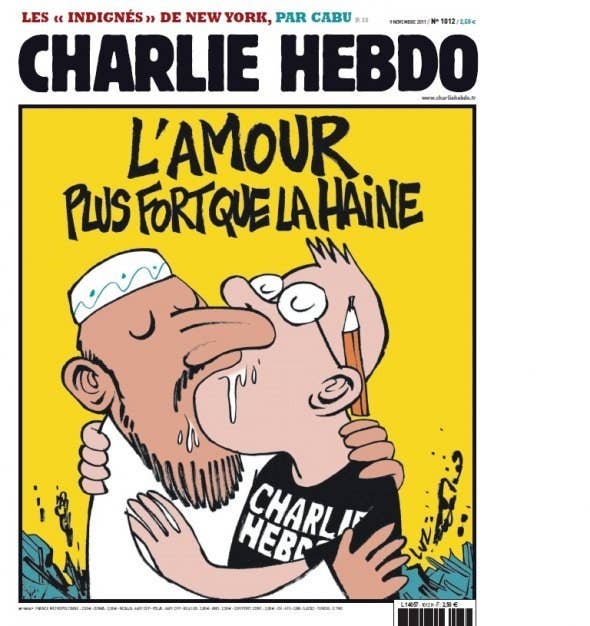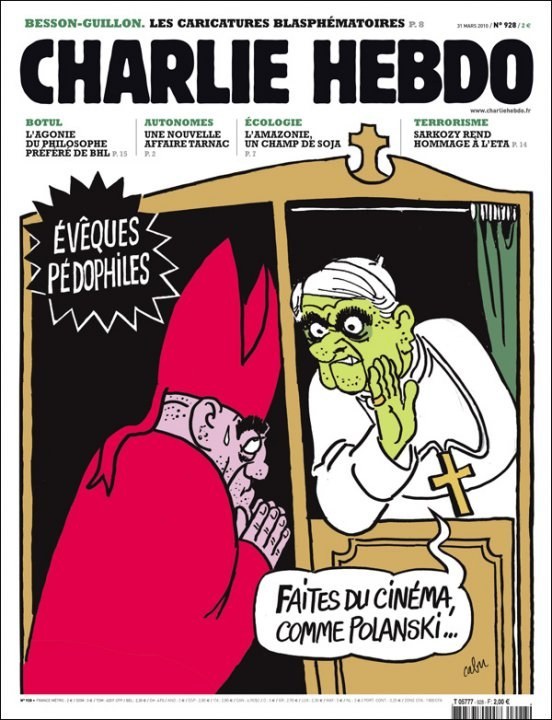Wednesday's attack on French publication Charlie Hebdo sparked an immediate response from the White House, calls for a peaceful protest in London, and speculation over whether the gunmen involved were from a radical Islamist group.
For those of you who've never heard of Charlie Hebdo, it's a satirical newspaper that isn't afraid to offend — in fact, it loves to do so. Founded in 1969, it champions the freedom to express any opinion and mock any group. Its bold and often crass cartoons have offended groups including the French far right, the Catholic Church, Jews, and Muslims.
Here are some Charlie Hebdo cartoons, one showing a Muslim man kissing a cartoonist...

...another with the Virgin Mary giving birth to Jesus...
Un enfant. Un papa, une maman. Seulement quand ça les arrange, en fait.
...and one of Catholic bishops discussing how to get away with pedophilia.

In recent years, the newspaper courted particular controversy over its cartoons that targeted Muslims.
French Foreign Minister Laurent Fabius showed full support Wednesday for the magazine's pluckiness and condemned the assault on its offices.
"It is for its values and its liberty that France was attacked today. French people unite against barbarity," he tweeted above a picture declaring "I am Charlie."
C’est pour ses valeurs et sa liberté que la France a été attaquée aujourd’hui. Français unis contre la barbarie.
However, Fabius had previously criticized Charlie Hebdo for actions he called akin to pouring fuel on a fire. "What is the utility of publishing these cartoons right now? The government condemns this act, and I hope reason will prevail," he said in 2012 following the publication of a naked picture of Muhammad, NPR reported.
That cartoon was one reason that France then temporarily closed embassies and other overseas offices in 20 countries for fear of retaliatory attacks, the New Yorker reported.
In November 2011, Charlie Hebdo's offices were fire-bombed following a special edition mocked up to look like it was guest-edited by the prophet Muhammad and named "Charia Hebdo". The cover cartoon showed Muhammad threatening the readers with "a hundred lashes if you don't die laughing".
The attack destroyed the magazine's offices. Its website was hacked and editor Stéphane Charbonnier had to live under police protection.
However, despite outcries from offended communities and warnings from its government, the newspaper hunkered down in its belief in free speech.
"In France, we always have the right to write and draw. And if some people are not happy with this, they can sue us, and we can defend ourselves. That's democracy," Charlie Hebdo journalist Laurent Leger told CNN in 2012. "You don't throw bombs, you discuss, you debate. But you don't act violently. We have to stand and resist pressure from extremism."
